A Complete Guide to Creating Online Coupons

If you own an online store, you’re probably concerned about marketing and customer retention. Even with quality products and competitive prices, sometimes you need something special to entice people to your business. That’s where online coupons can incentivize customers to keep purchasing your goods.
This article will look briefly at what coupons can do for your business and your options to implement them. Then we’ll dive right in and show you exactly how to use them on your website. Let’s get into it!
The Benefits of Offering Online Coupons and Discounts
Online coupons are specific codes or links that offer discounts on products. When consumers enter the coupon codes or select the URLs, they’ll pay less for the items in their shopping carts.
These coupons might be privately available to some consumers or publicly displayed on an ecommerce site, like this 50% off deal:
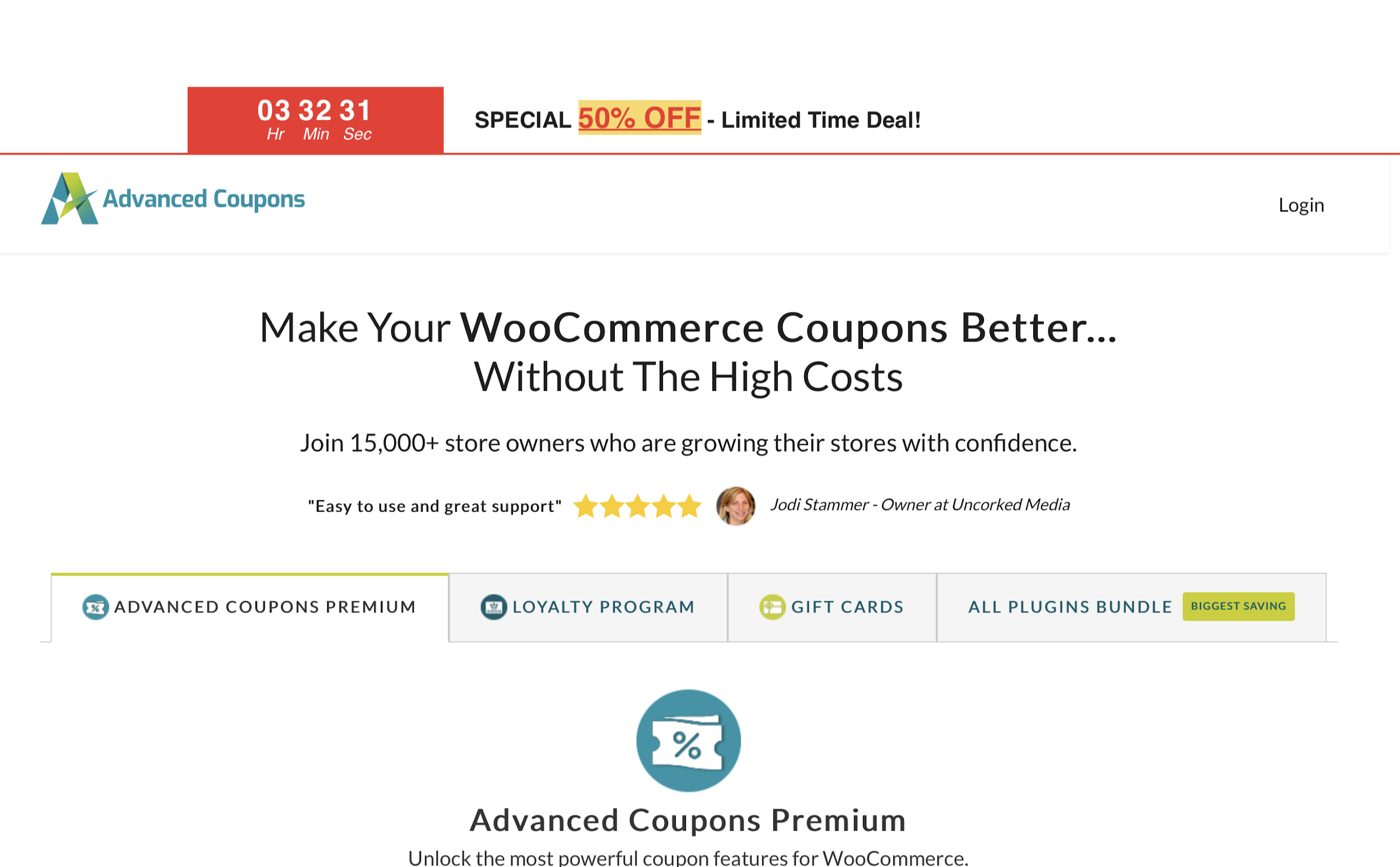
Using discounts and online coupons is one of the best ways to increase sales in your online store. In fact, more than 88 percent of American shoppers use coupons for their purchases.
This statistic is even more significant for younger shoppers. More than half of consumers aged 18-29 base their digital purchasing decisions on the availability of online coupons. Therefore, if your target audience is young, vouchers could promote higher conversion rates.
Furthermore, providing online coupons can foster a more personal relationship with your customers. If you offer these discounts through personalized email messages, your readers might feel more loyalty to your brand:
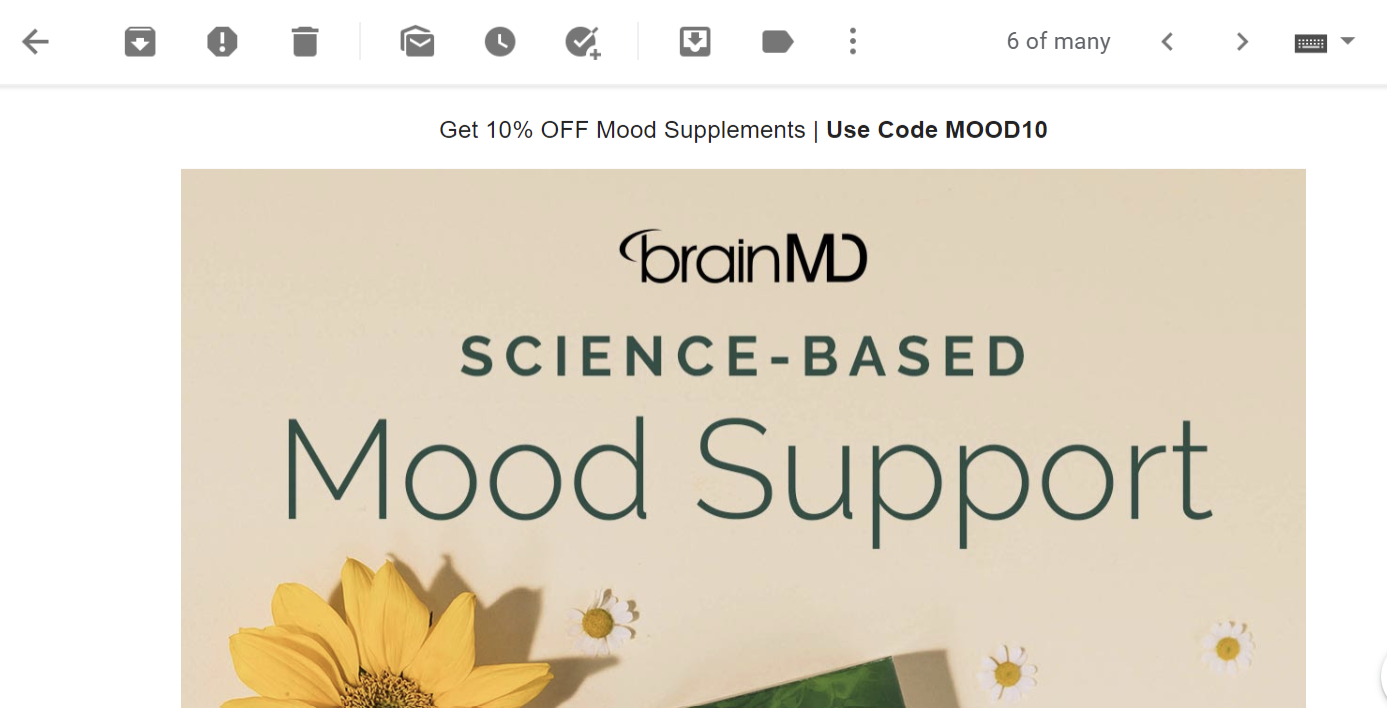 You can even use coupons to apologize for items being out of stock. In turn, this can give your business an edge in a crowded marketplace.
You can even use coupons to apologize for items being out of stock. In turn, this can give your business an edge in a crowded marketplace.
Finally, online coupons might help reduce cart abandonment. In 2021, almost 80% of online purchases were abandoned before completion. If you can catch customers with a last-second discount coupon, they might be more inclined to finish their orders.
How To Create Online Coupons (In 3 Easy Steps)
We’ve just covered some of the benefits of using online coupons in your ecommerce store. Now we’ll explain how to create and share them in three easy steps!
Step 1: Choose Your Plugin
There’s no shortage of coupon plugin options for your WordPress-based store. As with anything you install on your website, you’ll want to research factors such as features and pricing to see which tool works best for you.
Coupon Creator is a freemium plugin that enables you to create coupons easily. It features usable shortcodes and an expiration date option. It’s also fully compatible with WooCommerce:

Other coupon plugin options include OptinMonster and Coupon Generator for WooCommerce. However, if you’re looking for an excellent all-around choice, you should consider using Advanced Coupons.
Advanced Coupons builds on WooCommerce’s standard coupon features. It adds coupon URLs, Buy One Get One (BOGO) deals, schedules, and shipping deals. Plus, there are both free and premium versions available:

We’ll be working with Advanced Coupons for the rest of this tutorial. Once you’ve installed and activated the plugin, it’s time to get to work.
Step 2: Create Your Coupon
Now it’s time to create your first coupon. You probably already have a deal in mind for your customers, so let’s put it into action.
Head to the new Coupons menu in your WordPress dashboard. Next, you’ll see a splash screen with a highlighted button to Create your first coupon. Select this option:
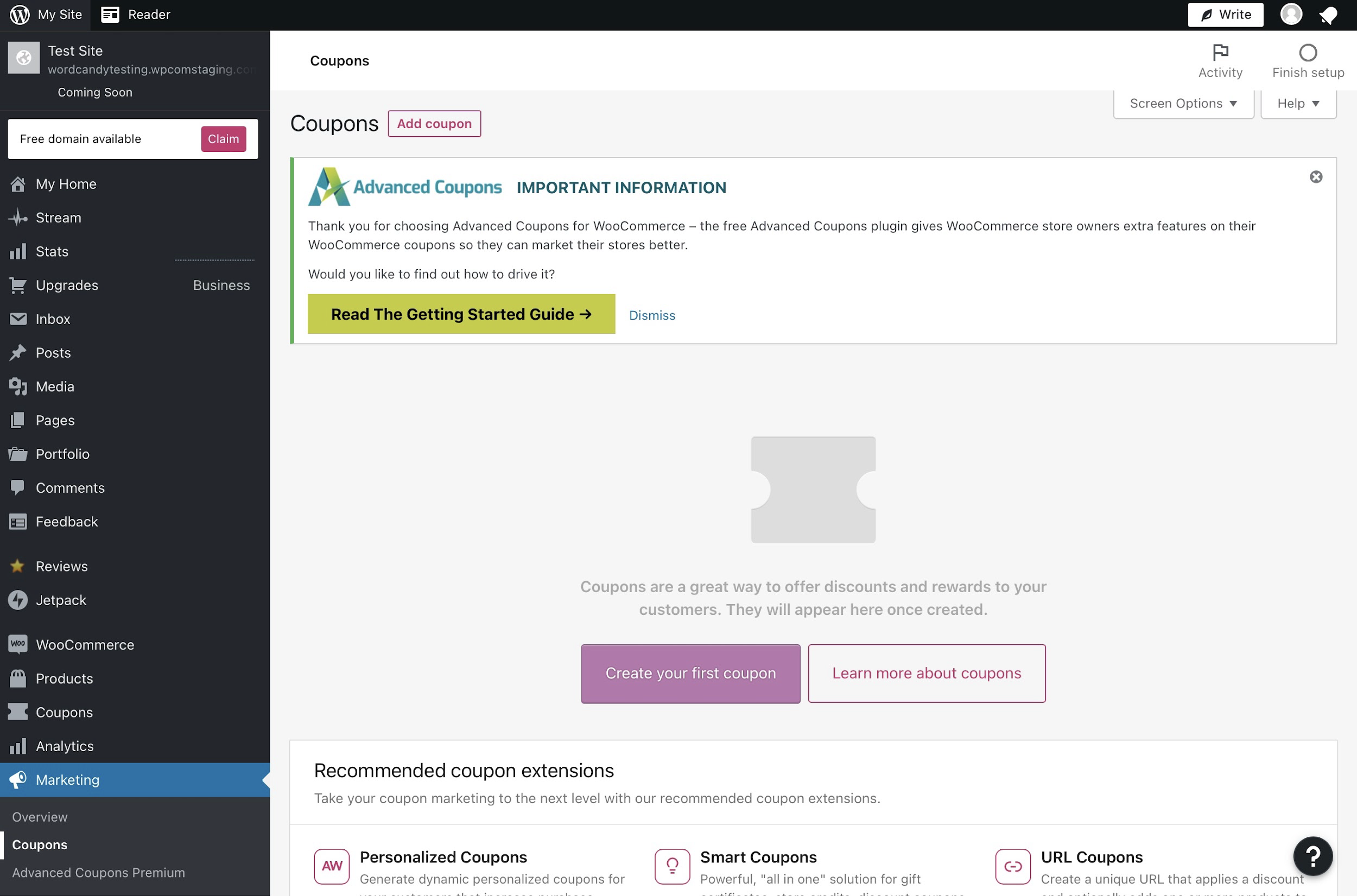
The next page features multiple options for customizing your coupon. At the top of the page, you can manually set the coupon code or randomly generate one. Below is an optional field for describing the coupon function, which can be helpful if you have multiple offers:
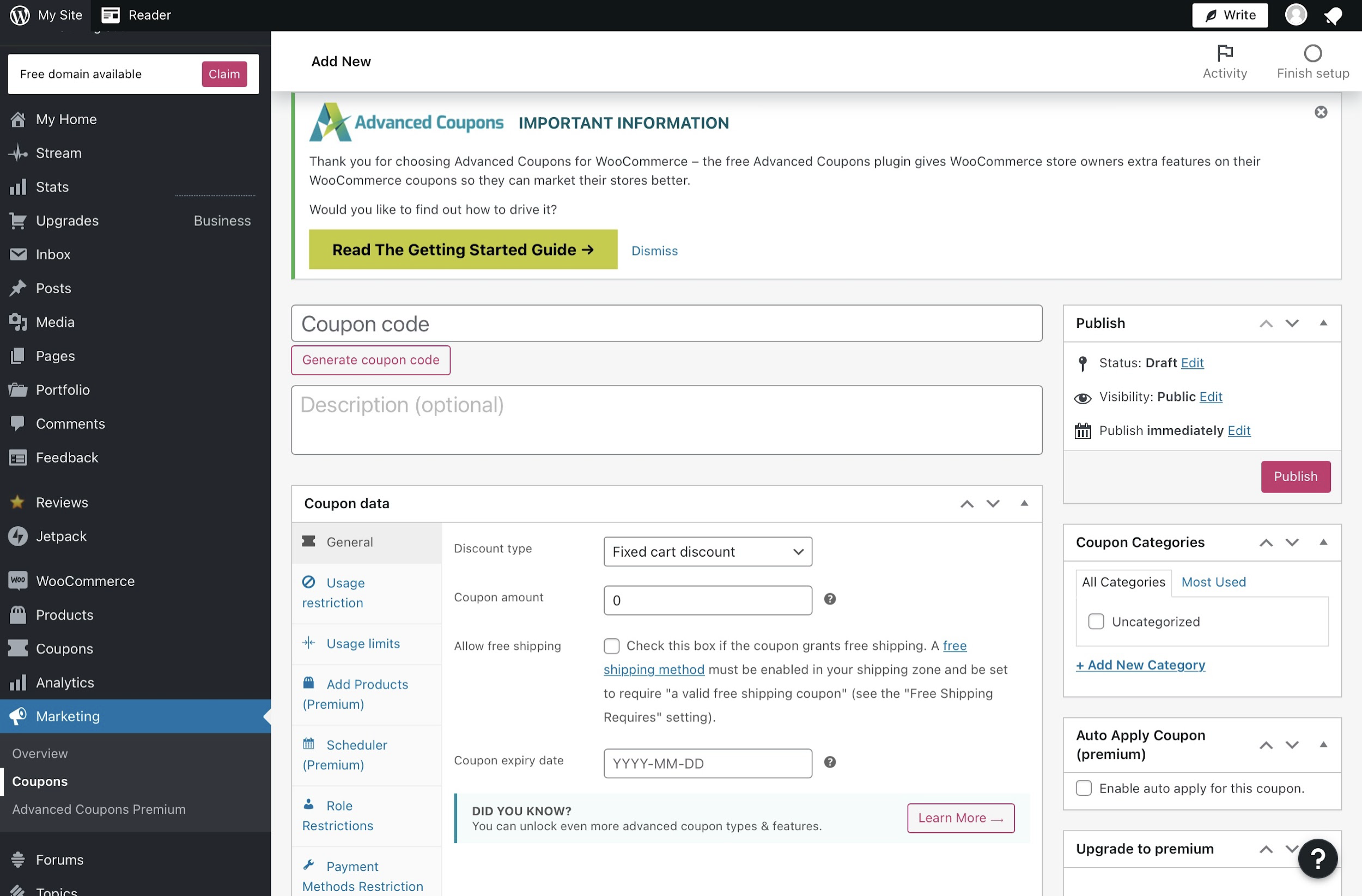
The coupon data section allows you to define the coupon type, how much discount it will apply, and whether it will enable free shipping or not. Here you can also set expiry dates for your offers and restrict their usage.
For example, perhaps you want to specify a minimum purchase of $50 before the customer can use the coupon. You might also like to configure the coupon for single use so that it can’t be reused.
If you’ve purchased the premium version of Advanced Coupons, you’ll also have access to scheduling, payment method restrictions, defining specified products, and shipping overrides.
Finally, you can set cart conditions for your coupons using IF and OR rules. For example, you might state that IF cart quantity = 3, the coupon can be applied. This setup means a customer will need to buy three items to access the discount:
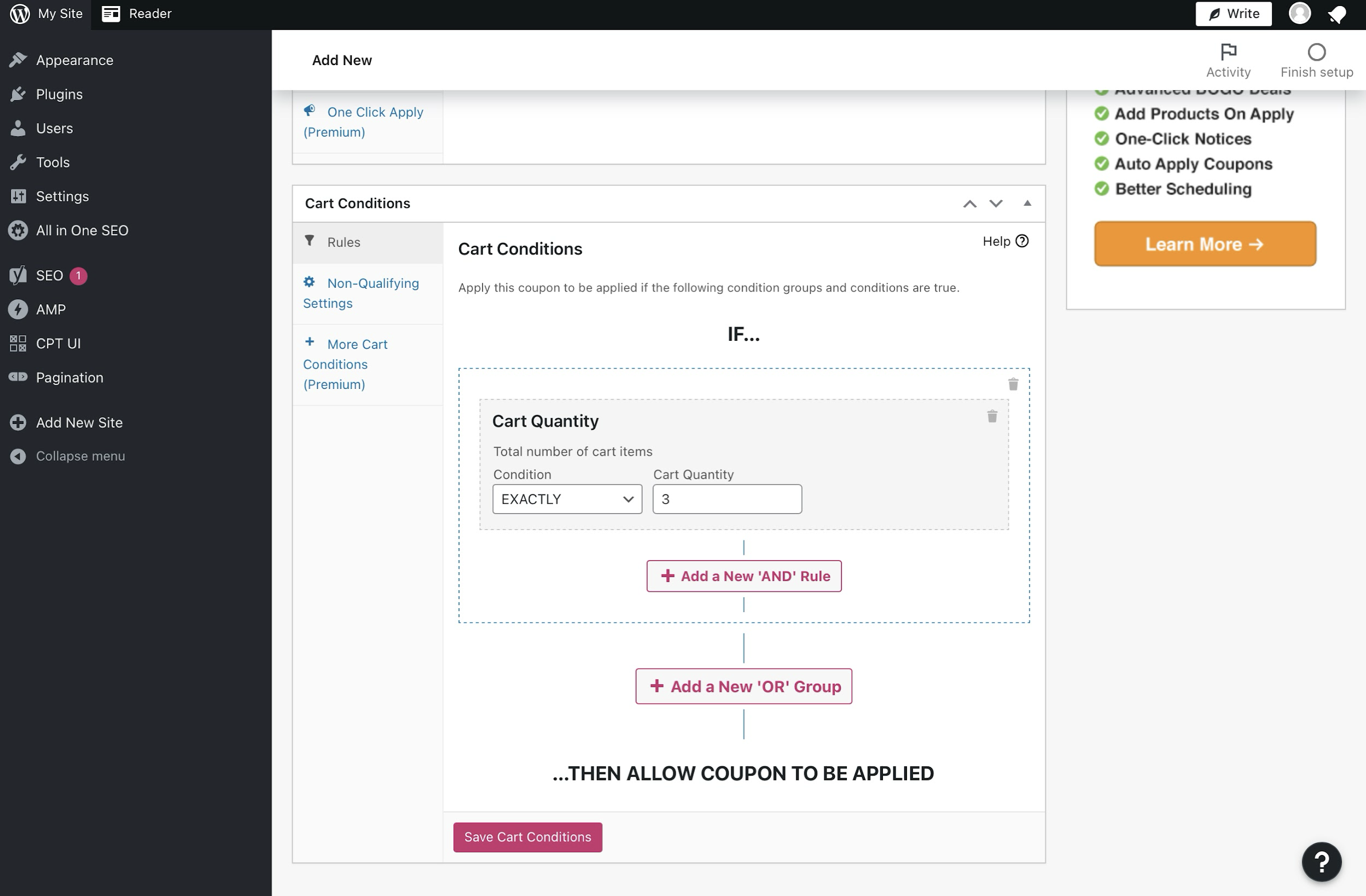
When you’re happy with your coupon, save and publish it. You can now share it with your customers.
Step 3: Share Your Coupon with Customers
It’s essential to share your coupons with your customers. Fortunately, there are various ways to approach this process.
Customers who have joined your mailing list already hold some interest in your business. You can entice them to your ecommerce store by offering exclusive discounts through your newsletters and product updates:
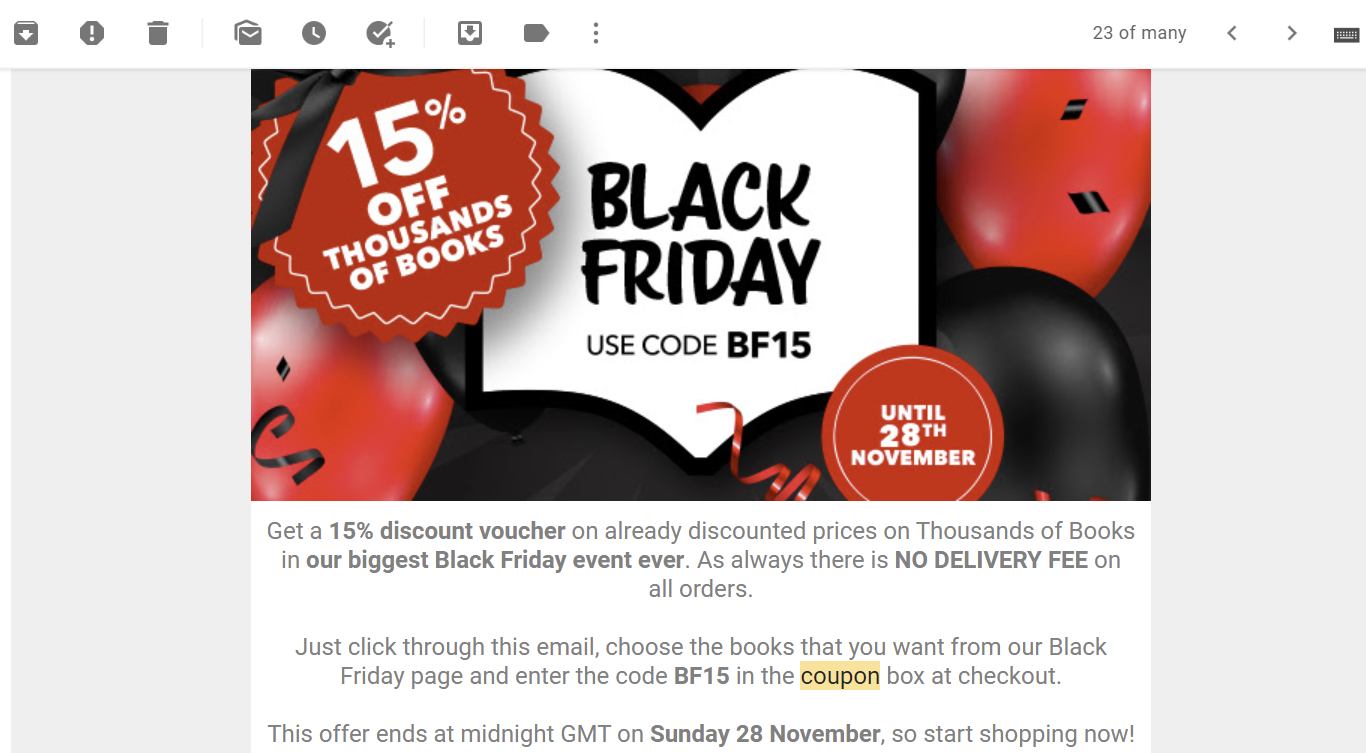
However, you’ll want to ensure you have a strong mailing list sign-up strategy. Coupons might even be part of your initial incentive.
You can also consider offering a discount coupon as a user goes to leave your website. You can utilize this Fear of Missing out (FOMO) if the customer hasn’t made a purchase.
In this scenario, you’ll want to ensure the offer is enticing to motivate visitors to stay and complete their purchases. Therefore, you might consider offering at least 15% off.
Popup notices and banners can also promote coupon codes. You can even combine them with email sign-up incentives to get users to join your mailing list:
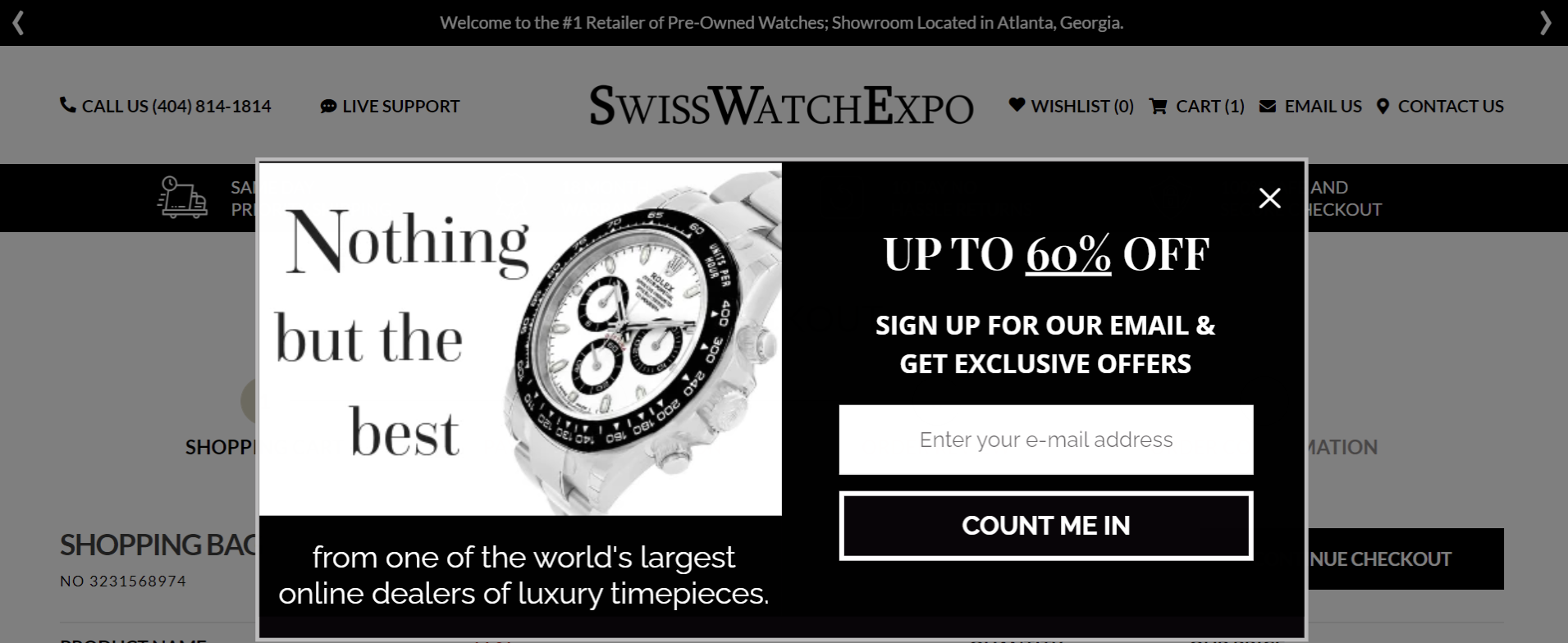
You can set up promotional popups to open on a time-delayed trigger. We recommend setting a delay between five and ten seconds and a scroll point of at least 20% to avoid annoying your visitors.
You’ll want to use a WordPress popup plugin to promote coupons in this way. For example, Popup Maker helps you create popups, modals, and content overlays:

Finally, consider using social media to share your coupons. You could simply share your codes in your posts. However, there are different strategies you can use here.
For example, you can enlist social media influencers to promote your products. In turn, you can offer them discount coupons on your items. This mutually-beneficial relationship can help you reach new audiences and increase your brand awareness.
Overall, we recommend using a mixture of different techniques to share your coupons. However, making too many vouchers could cut into your profit margins. Therefore, you might like to test your coupon strategies over time and measure your results.
Conclusion
Using online coupons can incentivize customers to complete their purchases and return to your store. Plus, it’s easy to create coupons with a plugin such as Advanced Coupons. Then, you can share your deals through email newsletters, promotional popups, and social media.
Do you have any questions about creating online coupons? Let us know in the comments section below!
Image source: Pixabay






